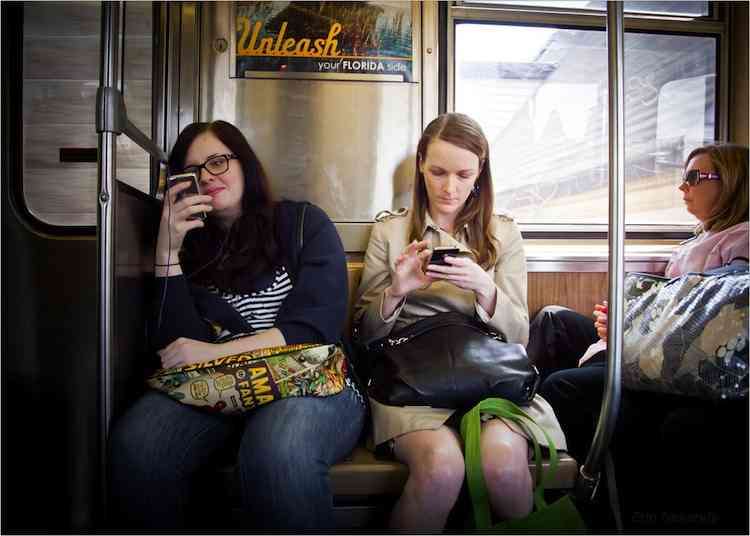In return for a $5 Starbucks gift card, commuters in a Chicago area train station were asked to participate in an experiment. Instead of remaining isolated, like most commuters do, they agreed to talk to the stranger next to them.
The behavioral scientists, Nicholas Epley and Juliana Schroeder, report that by the end of the train ride, commuters who talked to a person nearby reported having a more positive experience than those who had sat in solitude.
The New York Times reported, "Most people imagined it would be difficult to start a conversation. They estimated that fewer than half of their fellow commuters would want to talk to them. But in fact, not a single person reported having been snubbed. And the conversations were consistently pleasant."
"People enjoy connecting with others," wrote the researchers in the Chicago Tribune. "The pleasure of conversation was not just restricted to friendly people; we found the same results among introverts and extroverts."
"If connecting with others is more pleasant than sitting alone," ask the authors, "why the strong preference for quiet cars, silent cabs and empty rows on airplanes?"
Psychologist Jeremy McCarthy, author of The Psychology of Spas & Wellbeing: A Guide to the Science of Holistic Healing, points out that avoiding eye contact with strangers may be a cultural norm that has evolved over centuries and may be different as you go from country to country. In Germany, even in villages, people do not speak or make eye contact unless they are closely acquainted. Other countries, such as Greece, Spain, Italy, Mexico, and India, are known for the warmth and friendliness of the people.
In a University of California study, commuting is associated with fewer positive emotions than any other common daily activity. If we learn from psychologists and their many studies, which say that connecting with others is the most important determinant of happiness, maybe we will start more conversations in subway cars.
(READ the article in the New York Times)










Be the first to comment